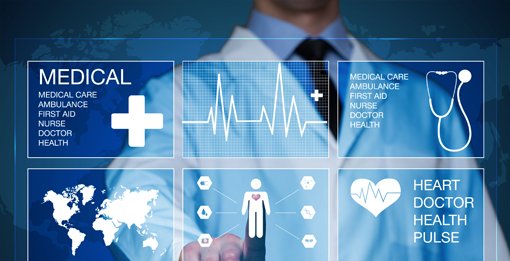Healthcare professionals play a critical role in ensuring the health and well-being of patients. With the rapid advancement of technology, healthcare providers are now better equipped than ever before to provide high-quality care and achieve better outcomes. From electronic health records to telemedicine, technology has become a powerful tool for healthcare professionals to improve patient outcomes and deliver more efficient and effective care.
One of the key benefits of technology for healthcare professionals is the ability to access and store patient information electronically. Electronic health records (EHRs) provide healthcare providers with a centralized and secure location for storing and accessing patient information, including medical history, lab results, and treatment plans. This can help healthcare providers make informed decisions about patient care and reduce the risk of medical errors.
In addition to EHRs, telemedicine has also become a valuable tool for healthcare professionals. With telemedicine, healthcare providers can connect with patients remotely, providing convenient access to medical care and reducing the need for in-person visits. This is particularly beneficial for patients in rural areas who may have limited access to healthcare services. It also helps to reduce healthcare costs and increases access to care, which is especially important in light of the COVID-19 pandemic.
Technology has also played a significant role in medical education and professional development. Healthcare providers can now access online learning resources, attend virtual conferences, and participate in continuing education programs. This helps to keep healthcare professionals up-to-date on the latest medical advancements and clinical practices.
One of the challenges for healthcare professionals in using technology is ensuring that it is secure and protects patient privacy. With sensitive patient information stored in electronic form, it is important to ensure that this information is protected from unauthorized access and data breaches. Healthcare providers must also be mindful of data privacy regulations, such as the Health Insurance Portability and Accountability Act (HIPAA), which sets standards for the protection of patient health information.
In conclusion, technology has become a critical tool for healthcare professionals in improving patient outcomes and delivering high-quality care. With access to electronic health records, telemedicine, and online learning resources, healthcare providers are better equipped than ever before to provide patients with the best possible care. However, it is important for healthcare professionals to understand the importance of securing patient information and ensuring that technology is used in a way that protects patient privacy.
References:
1. Centers for Disease Control and Prevention. (2021). Electronic Health Records (EHRs). https://www.cdc.gov/ehrmeaningfuluse/overview/index.html
2. Health IT.gov. (2021). Telemedicine: An Overview. https://www.healthit.gov/topic/telemedicine
3. World Health Organization. (2021). Telemedicine. https://www.who.int/campaigns/connecting-the-world-to-combat-coronavirus/innovative-care-technologies/telemedicine
4. Health Affairs. (2020). The Role of Technology in Supporting and Empowering Healthcare Professionals. https://www.healthaffairs.org/do/10.1377/hblog20200303.054074/full/
5. U.S. Department of Health and Human Services. (2021). The Health Insurance Portability and Accountability Act (HIPAA). https://www.hhs.gov/hipaa/for-professionals/special-topics/health-information-technology
*This article was produced with the assistance of artificial intelligence. Please always check and confirm with your own sources, and always consult with your healthcare professional when seeking medical treatment.








